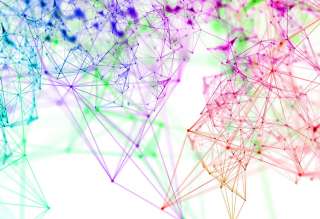- Our Story
- Publications & Resources
- Publications & Resources
- Publications
- IEEE Signal Processing Magazine
- IEEE Journal of Selected Topics in Signal Processing
- IEEE Signal Processing Letters
- IEEE/ACM Transactions on Audio Speech and Language Processing
- IEEE Transactions on Computational Imaging
- IEEE Transactions on Image Processing
- IEEE Transactions on Information Forensics and Security
- IEEE Transactions on Multimedia
- IEEE Transactions on Signal and Information Processing over Networks
- IEEE Transactions on Signal Processing
- IEEE TCI
- IEEE TSIPN
- Data & Challenges
- Submit Manuscript
- Guidelines
- Information for Authors
- Special Issue Deadlines
- Overview Articles
- Top Accessed Articles
- SPS Newsletter
- SigPort
- SPS Resource Center
- Publications Feedback
- Publications FAQ
- Blog
- News
- Dataset Papers
- Conferences & Events
- Community & Involvement
- Professional Development
- For Volunteers
- Information for Authors-OJSP
-
Home
An Exciting Juncture for Signal Processing Research: On Building Bridges, Challenges, and Opportunities
Conferences Events IEEE JSTSP Article IEEE Signal Processing Magazine IEEE TIFS Article IEEE TMM Article IEEE TSP Article Jobs in Signal Processing Lectures Machine Learning Seasonal Schools Signal Processing News SPM Article SPS Distinguished Lectures SPS Newsletter Article SPS Webinar SPS Webinars SPS Webinar Series Webinar webinars -
Our Story
What is Signal Processing?

The technology we use, and even rely on, in our everyday lives –computers, radios, video, cell phones – is enabled by signal processing. Learn More » -
Publications & Resources
-
SPS Resources
- Signal Processing Magazine The premier publication of the society.
- SPS Newsletter Monthly updates in Signal Processing
- SPS Resource Center Online library of tutorials, lectures, and presentations.
- SigPort Online repository for reports, papers, and more.
- SPS Feed The latest news, events, and more from the world of Signal Processing.
-
SPS Resources
-
Conferences & Events
-
Community & Involvement
-
Membership
- Join SPS The IEEE Signal Processing Magazine, Conference, Discounts, Awards, Collaborations, and more!
- Chapter Locator Find your local chapter and connect with fellow industry professionals, academics and students
- Women in Signal Processing Networking and engagement opportunities for women across signal processing disciplines
- Students Scholarships, conference discounts, travel grants, SP Cup, VIP Cup, 5-MICC
- Young Professionals Career development opportunities, networking
- Get Involved
-
Technical Committees
- Applied Signal Processing Systems
- Audio and Acoustic Signal Processing
- Bio Imaging and Signal Processing
- Computational Imaging
- Image Video and Multidimensional Signal Processing
- Information Forensics and Security
- Machine Learning for Signal Processing
- Multimedia Signal Processing
- Sensor Array and Multichannel
- Signal Processing for Communication and Networking
- Signal Processing Theory and Methods
- Speech and Language Processing
- Technical Working Groups
- More TC Resources
-
Membership
-
Professional Development
-
Professional Development
- Mentoring Experiences for Underrepresented Young Researchers (ME-UYR)
- Micro Mentoring Experience Program (MiME)
- Distinguished Lecturer Program
- Distinguished Lecturers
- Distinguished Lecturer Nominations
- Past Lecturers
- Distinguished Industry Speaker Program
- Distinguished Industry Speakers
- Distinguished Industry Speaker Nominations
- Industry Resources
- IEEE Training Materials
- Jobs in Signal Processing: IEEE Job Site
-
Career Resources
- SPS Education Program Educational content in signal processing and related fields.
- Distinguished Lecturer Program Chapters have access to educators and authors in the fields of Signal Processing
- PROGRESS Initiative Promoting diversity in the field of signal processing.
- Job Opportunities Signal Processing and Technical Committee specific job opportunities
- Job Submission Form Employers may submit opportunities in the area of Signal Processing.
-
Professional Development
-
For Volunteers
-
For Board & Committee Members
- Board Agenda/Minutes* Agendas, minutes and supporting documentation for Board and Committee Members
- SPS Directory* Directory of volunteers, society and division directory for Board and Committee Members.
- Membership Development Reports* Insight into the Society’s month-over-month and year-over-year growths and declines for Board and Committee Members
-
For Board & Committee Members
Popular Pages
Today's:
- Submit a Manuscript
- (MLSP 2024) 2024 IEEE International Workshop on Machine Learning for Signal Processing
- Information for Authors
- Learning From the Hidden Letters
- (SLT 2024) 2024 IEEE Spoken Language Technology Workshop
- IEEE/ACM Transactions on Audio Speech and Language Processing
- IEEE Transactions on Multimedia
- IEEE Transactions on Image Processing
- IEEE Signal Processing Letters
- Signal Processing 101
- (ACSSC 2024) 2024 Asilomar Conference on Signals, Systems, and Computers
- Conference Call for Papers
- IEEE Journal of Selected Topics in Signal Processing
- Conferences & Events
- IEEE Transactions on Signal Processing
All time:
- Information for Authors
- Submit a Manuscript
- IEEE Transactions on Image Processing
- 404 Page
- IEEE/ACM Transactions on Audio Speech and Language Processing
- IEEE Transactions on Information Forensics and Security
- IEEE Transactions on Multimedia
- IEEE Signal Processing Letters
- IEEE Transactions on Signal Processing
- Conferences & Events
- IEEE Journal of Selected Topics in Signal Processing
- Information for Authors-SPL
- Conference Call for Papers
- Signal Processing 101
- IEEE Signal Processing Magazine
Last viewed:
- IEEE Signal Processing Letters
- Editorial Board Nominations
- Guidelines
- Editorial Board
- Membership
- About IEEE Transactions on Signal Processing
- Conference Call for Papers
- Membership Board
- (MLSP 2024) 2024 IEEE International Workshop on Machine Learning for Signal Processing
- (PCS 2024) 2024 Picture Coding Symposium
- Call for Proposals: IEEE ICME 2026
- Call for Proposals: IEEE ASRU 2025
- IEEE Transactions on Signal Processing
- Publications
- Manuscript Submission Guidelines SP Magazine Feature Special Issue Articles
The ICASSP 2024 Audio Deep Packet Loss Concealment Grand Challenge: ICASSP 2024
You are here
Publications & Resources
- Publications & Resources
- Publications
- Submit a Manuscript
- Editorial Board Nominations
- Challenges & Data Collections
- Publication Guidelines
- Information for Authors
- Special Issue Deadlines
- Overview Articles
- Top Accessed Articles
- SPS Newsletter
- SigPort
- SPS Resource Center
- Publications Feedback
- Publications FAQ
- Blog
- News
For Authors
Top Reasons to Join SPS Today!
1. IEEE Signal Processing Magazine
2. Signal Processing Digital Library*
3. Inside Signal Processing Newsletter
4. SPS Resource Center
5. Career advancement & recognition
6. Discounts on conferences and publications
7. Professional networking
8. Communities for students, young professionals, and women
9. Volunteer opportunities
10. Coming soon! PDH/CEU credits
Click here to learn more.
The ICASSP 2024 Audio Deep Packet Loss Concealment Grand Challenge: ICASSP 2024
PLC is an important part of audio telecommunications technology and codec development, and methods for performing PLC using machine learning approaches are now becoming viable for practical use. Packet loss, either by missing packets or high packet jitter, is one of the top reasons for speech quality degradation in Voice over IP calls.
With the ICASSP 2024 Audio Deep Packet Loss Concealment Challenge, we intend to stimulate research in audio packet loss concealment. Initially, we will provide a set audio files for validation, degraded by removing segments corresponding to lost packets from real recordings of packet loss events, including lost-packet annotations, with high rates of packet loss, along with the corresponding clean reference files. Participants will be able to use this dataset to validate their approaches. Towards the end of the challenge, we will provide a blind test set constructed in the same way (audio files and lost packet annotations, without references). Building on the previous PLC Challenge at INTERSPEECH 2022, this challenge will feature an overall harder task and improved evaluation procedure.
Submissions will have to fill the gaps in the test set audio files using only a maximum of 20 milliseconds of look-ahead, mirroring the tight requirements of real-time voice communication. We will evaluate each submission’s performance on the blind test set based on crowd-source ITU P.804 mean opinion scores as well as speech recognition rate, and the three approaches with the best weighted average scores will be declared the winners.
Visit the Challenge website for details and more information!
SPS on Twitter
- DEADLINE EXTENDED: The 2023 IEEE International Workshop on Machine Learning for Signal Processing is now accepting… https://t.co/NLH2u19a3y
- ONE MONTH OUT! We are celebrating the inaugural SPS Day on 2 June, honoring the date the Society was established in… https://t.co/V6Z3wKGK1O
- The new SPS Scholarship Program welcomes applications from students interested in pursuing signal processing educat… https://t.co/0aYPMDSWDj
- CALL FOR PAPERS: The IEEE Journal of Selected Topics in Signal Processing is now seeking submissions for a Special… https://t.co/NPCGrSjQbh
- Test your knowledge of signal processing history with our April trivia! Our 75th anniversary celebration continues:… https://t.co/4xal7voFER
Home | Sitemap | Contact | Accessibility | Nondiscrimination Policy | IEEE Ethics Reporting | IEEE Privacy Policy | Terms | Feedback
© Copyright 2024 IEEE – All rights reserved. Use of this website signifies your agreement to the IEEE Terms and Conditions.
A not-for-profit organization, IEEE is the world's largest technical professional organization dedicated to advancing technology for the benefit of humanity.









